How We Heal
By Jo Strausz Rosen
In the 4th installment in a series on trauma, Dr. Betsy Stone reveals and acknowledges our own connections to trauma. We ask ourselves; how can we support others and at the same time support ourselves? We try to listen without judgment, but we experience other people’s traumatic confessions, and these become our own vicarious trauma.
Dr. Stone says we don’t get over trauma. We store it in our brains, and new trauma builds on previous trauma. It grows and if we are not careful, we continue to relive the experiences. Telling each other our stories is cathartic, but, like COVID, trauma is contagious. Trauma comes with a sense of powerlessness. When we care for each other, we help each other overcome these moments and distract ourselves from our own traumatic histories.
Often when we are engrossed in world news and politics, we can feel stress and powerless. Dr. Stone wants to remind us we can reset our brains to make a positive difference.
The act of getting up, moving around the room, walking, and shifting our bodies is necessary and helpful for our own recovery. Throughout the day, when we take time to use our bodies to reset our brains, our bodies and our minds appreciate it. Breathe deeply, take a walk, cook, paint, fold laundry, close your eyes. Go outside and look up. Appreciate nature. Inhale lavender, call an old friend, write a letter, recite a poem aloud, read something funny…
Whatever reset you find helpful has a powerful impact on your ability to concentrate, attend to your work and resume life. Dr. Stone says to block off time and space during each day. We need and deserve to reset ourselves.
The power you get when you rest and reset helps when our thinking gets fuzzy… or when we are hopped up on adrenalin during a meeting, or worried about family and simply exhausted from multitasking, and caring for others. As we age, more and more caregiving takes place. Either we are caring for an aging parent, a partner, or a friend. I attended a class this week, one in our Caregiver Series that featured Rabbi Laura Geller of Los Angeles, who told us that we are so lucky to live here in the Detroit area. She admires our community for our mission of caregiving, and said we can learn from and lean on each other for help.
Trauma affects us most when we are vulnerable. We should identify our vulnerability and reframe those negative thoughts into positivity and strength. We can lose our perspective when we face trauma. If we tell ourselves we are burnt out or used up, that becomes our reality.
We should not view ourselves as helpless. We can rewrite our narrative to create more positivity. We can recall times when we reset ourselves, prioritized or took control of a situation. When we take time to reset and reflect, we heal. Dr. Stone suggests that we can use this to take our power back.
How are you feeling about everything? You’re not alone. We are here for each other. How can you relieve your own stress and trauma when caring for others? Rabbi Geller reminded us to keep a gratitude journal. Write down 3 things every night. Acknowledge to yourself that life is tough. She says “Notice that things are really hard, and tell yourself, “Sweetheart, this isn’t easy. Breathe.” And these loving self-talks should be accompanied by soothing, rubs on your heart with our own hands. Love yourself.
Rabbi Geller shared with the group, “The upcoming holiday of Purim is about joy. When the Month of Adar begins, joy increases. This year we are fortunate to have Adar Adar. Increase our joy and do what we can in the work we do and in our relationships with everyone. Do what we can NOW to increase joy in our lives…. increasing joy in the world.”




